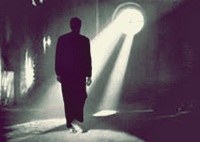Dump the Stigma and Focus on Recovery
Author Andy Behrman, aka "Electroboy," discusses the stigma attached to living with bipolar disorder and how he dealt with it.
Personal Stories on Living with Bipolar Disorder
 For years, I suffered with a mental disability. I still do - no one has found a cure for manic depression (bipolar disorder) yet. During those crisis years, though, nobody knew anything was really wrong with me. I was experiencing a wild roller coaster ride of frightening highs and lows that put my life in jeopardy, but my disability was completely invisible.
For years, I suffered with a mental disability. I still do - no one has found a cure for manic depression (bipolar disorder) yet. During those crisis years, though, nobody knew anything was really wrong with me. I was experiencing a wild roller coaster ride of frightening highs and lows that put my life in jeopardy, but my disability was completely invisible.
Granted, I was behaving rather erratically, flying from New York to Tokyo to Paris on business three or even four times a month, counterfeiting art and smuggling tens of thousands of dollars back into the United States. At the same time, I was drinking heavily and indulging in drugs (self-medicating my mental illness), engaging in sex with complete strangers that I would meet in bars and clubs, staying up for days on end, and in general living on the edge ...
but my disability was an invisible one.
Friends and family were convinced I was functioning just fine because I was efficient, productive and successful - who wouldn't be, working twenty-hour days? I had everybody fooled with my illness. While my manic depression remained undiagnosed, I secretly wished that my disability was a physical one - one that others would notice. Maybe people would be supportive and help me if I had diabetes or, God forbid, cancer. Maybe I needed to show up to the next family function in a wheelchair to get somebody's attention. I was helpless living with this invisible illness.
Once I was diagnosed, though, and given what I refer to as my "death sentence," things changed quickly. And no, my family and friends did not come rushing to my side to support me in battling against my illness - somehow I fantasized that this was going to happen.
All of a sudden I realized the stigma of having a mental illness - it hit me smack between the eyes. And the stigma was almost as bad as having to come to terms with the fact that I was mentally ill and needed treatment.
The stigma, I realize now, "started" with me. I initiated it. It was my own fault and a result of my own naive at age 28.
 When the doctor diagnosed me and used the words "manic depression" and "bipolar," I had no idea what he was talking about. "Manic" sounded like "maniac" and "bipolar" sounded like "polar bear," so I was completely confused (in retrospect I should have aligned myself with the term "bipolar" then because of the "polar bear" association, but I didn't).
When the doctor diagnosed me and used the words "manic depression" and "bipolar," I had no idea what he was talking about. "Manic" sounded like "maniac" and "bipolar" sounded like "polar bear," so I was completely confused (in retrospect I should have aligned myself with the term "bipolar" then because of the "polar bear" association, but I didn't).
I was under the impression that the illness was degenerative and that I probably wouldn't live to see my next birthday. I asked the doctor how many other people there were like me - 2.5 million people in America alone.
He tried to calm me down and talk me through the diagnosis, but I was self-stigmatized by my new label. And then, of course, he had to remind me that I was now part of a category of people called "mentally ill." Oh, God. I was a lunatic, a freak, a psycho, a crack-up and a mental case.
When I left his office on the Upper East Side of Manhattan and walked home across Central Park that snowy morning, I imagined being forced to have electroshock therapy like Jack Nicholson in One Flew Over The Cuckoo's Nest. I persuaded myself that I was overreacting, taking this too far. That could never happen to me. But actually, I wasn't taking it too far. Less than three years later I found myself in the operating room of a psychiatric hospital in Manhattan, lying on a gurney with electrodes attached to my head and receiving electroshock treatments - 200 volts of electricity through my brain.
The stigma first hit me from the "outside world" with a little help from the written prescription my doctor gave me. It was filled out for medications thought to control my manic depression. The prejudice began then.
On seeing it, my own neighborhood pharmacist remarked, "Your doctor's putting you on all of this medication? - are you okay?" I didn't respond. I paid for my four prescription drugs and left the pharmacy wondering exactly what he meant by "all of this."
Was I some sort of "mental case" because I was now taking four different medications? Did the pharmacist know something about my condition that I didn't know? And did he have to say it in such a loud voice, just hours after my diagnosis? No, he didn't, that was unkind. It seemed that even the pharmacist had an issue with mentally ill patients, and trust me, mentally ill patients in Manhattan were the "bread and butter" of his business.
Next I had to tell people about the diagnosis. Scared to death, I waited a week until I got up the nerve to ask my parents to dinner.
I took them for a meal at one of their favorite restaurants. They seemed suspicious. Did I have something to tell them? They automatically assumed I was in some sort of trouble. It was written over both of their faces. Assuring them that I wasn't, but had some news that might surprise them, I just spilled the beans.
"Mom, Dad, I've been diagnosed as a manic depressive by a psychiatrist," I said. There was a long silence. It's as if I'd told them that I had two months to live (interestingly, the same reaction that I had when my doctor told me).
They had a million questions. Are you sure? Where did it come from? What's going to happen to you? Although they didn't come out and say it, they seemed concerned that I was going to "lose my mind." Oh, God. Their son had a mental illness. Was I going to end up living with them for the rest of their lives? And of course, they wanted to know if it was genetic. My telling them that it was didn't exactly make for a pleasant conclusion to the dinner. Not only were they now faced with the stigma that their son had a mental illness, but the stigma that mental illness ran in the family.
With friends, it was easier to break the news of my mental illness.
They seemed to know more about manic depression and were supportive of my getting well and staying on a medication regime. But all hell broke loose when medication didn't manage my illness and I opted for the last resort - electroshock therapy.
My friends had had a really mentally ill friend who had to be hospitalized and "shocked" to maintain an even keel. This was too much for some to handle and those people simply disappeared. Nobody seemed to want a friend who was now officially a psychiatric patient and, after electroshock, a certifiable zombie.
In fact, everybody seemed frightened of me, including my neighbors, my landlord and shopkeepers who I had known for years. They all looked at me "funny" and tried to avoid making eye contact with me. I, however, was extremely up-front with them. I told them all about my illness and was able to explain my symptoms to them as well as my treatment. "Have faith - one day I'm going to be just fine," I seemed to cry out inside. "I'm still the same Andy. I've just slipped a bit."
As no one knew much about my mental illness, a lot of people had the attitude that I had the capability to "kick it" and get better instantly. This was the most frustrating attitude for me. My manic depression was ravaging my life, but because nobody could see it, many people thought it was a figment of my imagination. Soon I started thinking this too. But when the symptoms were out of control - the racing thoughts, the hallucinations and the sleepless nights - the fact that I really was ill was reassuring.
The guilt I felt for having a mental illness was horrible. I prayed for a broken bone that would heal in six weeks. But that never happened. I was cursed with an illness that nobody could see and nobody knew much about. Therefore, the assumption was that it was "all in my head," rendering me crazy and leaving me feeling hopeless that I'd never be able to "kick it."
But soon, I decided to cope with my illness like it was a cancer eating away at me and I fought back. I dealt with it like it was any old physical illness. I dumped the stigma and focused on recovery. I followed a medication regime, as well as my doctor's orders, and tried not to pay attention to the ignorant opinions from others about my illness. I fought it alone, one day at a time, and eventually, I won the battle.
About the author: Andy Behrman is the author of Electroboy: A Memoir of Mania, published by Random House. He maintains the website www.electroboy.com and is a mental health advocate and spokesman for Bristol-Myers Squibb. The film version of Electroboy is being produced by Tobey Maguire. Behrman is currently working on a sequel to Electroboy.
next: Jean: Sparkly but with Rocks
~ bipolar disorder library
~ all bipolar disorder articles
APA Reference
Staff, H.
(2008, December 19). Dump the Stigma and Focus on Recovery, HealthyPlace. Retrieved
on 2026, February 25 from https://www.healthyplace.com/bipolar-disorder/articles/dump-the-stigma-and-focus-on-recovery



